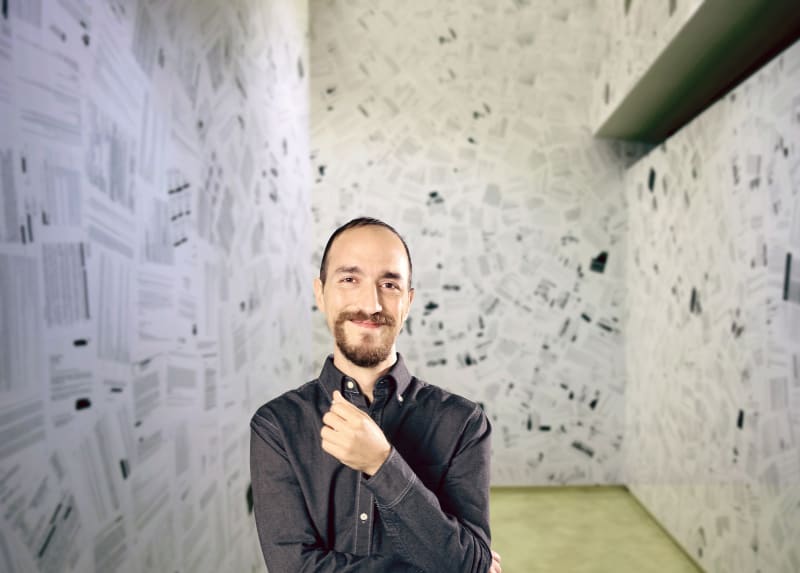"One of my firmest convictions is that poetry transforms objects into art in the same way that it converts noise into music. The physical object in my work is an extension of the poem, which expands the potential of words and extends the limits of language; while poetry becomes a prolongation of the object, providing an emotive and meaningful presence."
Yucef Merhi is an artist, coder, and academic researcher, based in Miami. He is a pioneer of Digital Art and is known for exhibiting the first work of art that included a video game console, the Atari 2600. Since 1985, Merhi has produced a wide body of works that engage with poetry, facial recognition, AI, VR, and retro video game platforms, towards the formulation of dynamic linguistic experiences. In 1998, he developed his first “datagram”, a concept he coined to visualize the movement of hacked information. Merhi holds a Master's from NYU's Interactive Telecommunications Program (ITP).
His career encompasses a world wide exhibition record in museums, biennials, and galleries of North, Central, and South America; Europe, and Asia, such as The New Museum (New York), Los Angeles County Museum of Art (Los Angeles), Bass Museum (Miami), Museo de Arte Contemporáneo de Caracas (Caracas), Haus der Kulturen der Welt (Berlin), De Appel (Amsterdam) La Colonie (Paris), Seoul Museum of Art (Seoul), as well as the 30th Ljubljana Biennial, the 13th Cuenca Biennial, and the Bienal de São Paulo-Valencia. He is the recipient of several awards and fellowships, including a 2019 Ellies Creator Award, a 2018 CIFO Grant & Commissions Program Award; and a 2009 New York Foundation for the Arts fellowship in Digital/Electronic Art.
His work is represented in numerous museum and private collections, among them the Orange County Museum of Art (Newport Beach), Library of Congress (Washington DC), Mednarodni Grafični Likovni Center - MGLC (Ljubljana), Museo Extremeño e Iberoamericano de Arte Contemporáneo (Bajadoz), Galería de Arte Nacional (Caracas), and so forth.
